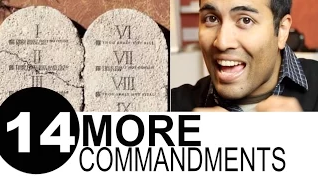Hemant Mehta's Blog, page 1936
September 4, 2014
Cricket Expert Told He Can’t Umpire Game Between Church Teams Because His Ancestor was a Bishop 200 Years Ago
I didn’t even know the Vatican had a cricket team, but they do, and the roster is filled with “priests, deacons and seminarians studying in Rome.” In the spirit of goodwill, the Vatican XI (clever) decided to play an exhibition match against the Archbishop of Canterbury’s XI. Anglicans versus Catholics. Should be fun.
Playwright and experienced cricket player Michael Claughton heard about the match and offered to be the umpire. But he was rejected for the strangest of reasons:
… despite his 18 years’ experience — and the fact he has played cricket since childhood — the [sponsoring Church Times] publication refused to give him the job because his ancestor Thomas Leigh Claughton was a Church of England bishop… and it might make him biased against the Catholic team.
By the way, his ancestor lived 200 years ago.
Father-of-one Mr Claughton said: “It’s bonkers. This is church bureaucracy gone mad. They said to me ‘we’ll probably be looking for a Methodist or an atheist’. It’s amazing.”
…
Church Times editor Paul Handley said: “It’s perfectly true. We wanted to be careful that the match is seen to be completely fairly played, and it was a suggestion from Kent County Cricket Club. They said they will look for umpires and look for people who are theologically neutral.
How’s that for a background check…?
I doubt they’ll find many qualified atheists or Methodists, by the way, since many of them have ancestors who held different beliefs. I know religion has a habit of sticking its nose where it doesn’t belong, but this one’s a stretch even for me.
(Image via Mitch Gunn / Shutterstock.com. Thanks to Brian for the link)
The Daily Caller Is Wrong: Atheists Aren’t Trying to Ban “All Religious Expression” at High School Football Games
There’s a lot of controversy surrounding the public high school football teams in Florida’s Orange and Seminole Counties. After discovering that coaches were leading team prayers and there were “team chaplains,” the Freedom From Religion Foundation called for a full stop on the church/state violations.
This sort of coach-led prayer is illegal
We already know students and parents on the team have no idea what this issue is really about since they were praying on the field after last Friday’s game in protest. Even though no one was ever stopping them from doing that.
But The Daily Caller, despite being a right-wing publication, should know better. Instead, this was their headline yesterday:
That’s absolutely untrue. “Religious expression” is fine at public high school football games. No one’s trying to stop that, including atheist groups, even if many of us find the displays frivolous and silly.
The only thing groups like FFRF are trying to stop is school-sponsored religious expression. That’s it. No coach-led prayers. No team chaplain. No Bible verses on workout sheets. No prayers over the public address system. It’s not that hard of a concept.
I’m sure The Daily Caller knows that, too. But it’s much easier to draw web traffic if you lie to Christians and play right into their misconceptions. Hell, Todd Starnes has made a career out of creating fake controversies out of nothing.
Yesterday, I asked reporter Tristyn Bloom to change the headline (or to have it changed if she didn’t write it), but that hasn’t happened yet.
After Kicking Out Atheist for Sitting During Pledge, Florida City Leaders May Change How It Opens Meetings
You may remember that Mayor John Rees, the leader of the Winter Garden City Commissioners (in Florida), kicked atheist Joseph Richardson out of last week’s meeting after he refused to stand for the invocation and Pledge of Allegiance:
Rees singles out Richardson for not standing up
Several atheist members of the Central Florida Freethought Community said they would stage a silent protest next week by attending the city’s upcoming meeting and remaining seated during the invocation and Pledge in solidarity with Thoreau.
That said, it may be unnecessary. The Commissioners plan to hold a special meeting tomorrow to discuss this very incident:
City Manager Mike Bollhoefer said the city has been considering changes to its traditional opening because of a U.S. Supreme Court ruling in May regarding ceremonial prayer, but the commission moved up the issue after Mayor John Rees ordered Winter Garden resident Joseph Richardson to stand for the pledge or be escorted from the chambers by police.
“It’s an important issue that we have to resolve, and we decided we ought to resolve it sooner rather than later,” Bollhoefer said.
It sounds good… but let’s be honest: There are no actual “changes” necessary. The Commission can still have an invocation and Pledge. What has to be fixed is enforcement of the current rules. The Mayor stepped out of line when he kicked an atheist out of the meeting for doing something that was perfectly fine — and not a single member of the Commission called him out on it. I don’t know what they’re going to change, but it would be a step in the right direction if they asked Mayor Rees to offer a sincere apology to Richardson at the next meeting. He may be too stubborn to do that, though.
(Thanks to Brian for the link)
14 Commandments That God Forgot
The video below, part of The Atheist Voice series, offers 14 more Commandments:
A rough transcript of the video can be found on the YouTube page in the “About” section.
We’d love to hear your thoughts on the project — more videos will be posted soon — and we’d also appreciate your suggestions as to which questions we ought to tackle next!
And if you like what you’re seeing, please consider supporting this site on Patreon.
September 3, 2014
I’m Speaking in Illinois and Idaho This Month… Come Watch!
Over the next couple of weeks, I’ll be speaking at two public events about the experiences of young atheists. All the details are below. Both events are free (though donations to the organizations are always welcome)!
Who: Ethical Humanist Society of Chicago
Where: Skokie, IL
When: Sunday, Sept. 7 at 10:30a.
Who: Boise State University Secular Student Alliance
Where: Boise, ID
When: Saturday, Sept. 20 at 7:00p. Jordan B Ballroom in the SUB.
Hope to see you there! Other upcoming events are listed here.
Biblical Counselors Aren’t a Replacement for Trained Psychologists
When I was growing up in the conservative Christian community, the idea of mental illness had such a heavy social stigma around it that it was rarely, if ever, discussed. As I’ve come out of that world, I’ve discovered the stark contrast between how “normal” people approach mental health issues and the way I grew up. Now, people talk about their therapists and their meds and their anxiety or depression — then, when a mom was dealing with postpartum depression, she was told by her pastor that she was dealing with the “sin of unbelief” and needed to just “trust God more.”
Pacific Standard just posted a longform piece by Kathryn Joyce on “the rise of biblical counseling” in the church. It’s pretty comprehensive and quite consistent with what I observed firsthand.
In contemporary evangelical Christianity, the concept of Biblical infallibility and inerrancy spills over into the idea that the Bible contains all teaching necessary for life and that all struggles in life are common to everyone and can be solved with enough and proper application of the Bible and biblical concepts. Psychology and science in general are suspect because they are mutable depending on scientific progress — the Bible is a fixed system and will not be changed over time; it’s therefore seen as more dependable for a source of truth than science.
Most mental illnesses in the DSM, then, are written off as irrelevant. All mental issues can be solved through Bible-centered talk therapy (biblical counseling), and it’s usually administered by pastors who have rudimentary training in talk therapy methods and little else. Many biblical counseling certification programs are short — six weeks to six months — and I’ve known people who did their training via correspondence (without even the benefit of an online class).
Joyce writes:
The most serious of these inconsistencies concern the role in biblical counseling of non-biblical knowledge, especially in the fields of medicine and science. Biblical counselors stress that they are not opposed to “descriptive” psychology, which makes observations about humanity, but only “prescriptive” therapy, which steps into an advisory role they view as the province of pastors. Most also claim to respect the role of science more broadly, something that [pastor Jay] Adams attempted to clarify over 40 years ago in Competent to Counsel, distinguishing between psychology, much of which he considered to be speculative and unproven, and proper hard science.
The church is being forced to come to terms with psychology in ways it didn’t when I was a kid, with the rising acceptance of LGBTQ individuals and relationships, the slow demise of anti-gay conversion therapy, and the issue of suicide being discussed more than ever before (through the death of Rick Warren‘s son, among others). Depression is less likely to be immediately written off as being rooted in doubting God’s goodness and is now taken a bit more seriously. Chemical intervention is less suspect (though it’s still seen as something to help you through a crisis and then to be weaned off of), and ADHD is less of a joke and given a bit more attention in discussions about social issues.
Joyce observes, and I agree, that biblical counseling doesn’t seem to help much:
In practice, according to [Baylor University professor of psychology and neuroscience Matthew] Stanford, when churches began once again to address mental illness, the mindset that came to prevail among biblical counselors was that the mentally ill were simply “insufficient believers.” This had calamitous effects on severely troubled patients. “I can honestly tell you, as someone who’s been doing this for 20 years, that I’ve never seen someone who has a serious mental illness that went to a biblical counselor and didn’t actually get worse and get hurt,” Stanford says. “I’ve never seen them get better.”
If you’re curious about why mental health is often not taken seriously by conservative Christian communities, the piece is a fantastic summary of the state of affairs to date. I hope to see the end of counseling a la Lou Priolo and others in my lifetime, but I suspect it’s unlikely.
(Image via Shutterstock)
Study Shows That More Religious Places Show Less Scientific Innovation (or When Religion Wins, Science Loses)
According to a recent paper by a Princeton economist and his colleagues, we can attach some numerical data to the battle between science and religion (or, rather, “patents per capita” versus how seriously the people there take religion):
Chris Mooney at Mother Jones explains:
“Places with higher levels of religiosity have lower rates of scientific and technical innovation, as measured by patents per capita,” comments [economist Roland] Bénabou…
…
[The paper] uses an economic model to explore how scientific innovation, religiosity, and the power of the state interact to form different “regimes.” The three kinds of regimes that they identify: a secular, European-style regime in which religion has very little policy influence and science garners great support; a repressive, theocratic regime in which the state and religion merge to suppress science; and a more intermediate, American-style regime in which religion and science both thrive, with the state supporting science and religions (mostly) trying to accommodate themselves to its findings.
It is in the process of this inquiry on the relationship between science, religion, and the state that the researchers dive into an analysis of patents, both in the United States and across the globe. And the results are pretty striking.
Even after the researchers controlled for factors like education and income levels, the correlations remained in place. The more religion in the region, the fewer patents per capita issued. That held true for both nations and states:
Does this mean religion hurts innovation? Maybe, but that’s not the whole story:
It is important to keep in mind that these findings are correlational in nature; the authors explain that they do not allow for “definite causal inferences to be drawn.” Their own view is that causation probably “goes both ways”: Religiosity stifles innovation, but at the same time, innovation and science weaken religiosity.
Policy may be the key here. Government has the ability to incentivize and jumpstart innovation, though it’s frequently subject to the religious views of elected officials (and the religious whims of voters). Government-funded stem cell research and NASA funding, for example, can lead to all sorts of scientific breakthroughs… but that funding can be dramatically decreased (or lost entirely) if there are Bible-based objections to spending the money there. And those of us in the U.S. are well aware of how certain state governments have hurt science education.
It’s just another piece of evidence showing how religion can be a negative force in society.
(Thanks to William for the link)
Indiana Governor Says State Park’s Sculpture of a Kneeling Soldier in Front of a Christian Cross Can Stay Put
The Christian sculpture at Whitewater Memorial State Park in Liberty, Indiana that caused so much controversy can stay right where it is, says Indiana Department of Natural Resources director Cameron Clark. And Governor Mike Pence is backing him up:

Department of Natural Resources Director Cameron Clark sent a letter Tuesday morning to the Union County Development Corp., saying the agency was “pleased to accept” its gift of a statute featuring a soldier standing at a cross at Whitewater Memorial State Park in Liberty.
The letter says the statue is to be permanently placed at the park and “become property of the DNR in perpetuity.”
…
“I fully support the decision by the Indiana Department of Natural Resources to accept the sculpture commissioned by local citizens to honor all who have fallen in service to our country,” Pence said. “The freedom of religion does not require freedom from religion. The Constitutions of our state and nation more than allow the placement of this Hoosier artist’s sculpture on public lands.
“So long as I am governor, I will defend the right of Hoosiers to display this sculpture in Whitewater Memorial State Park as a lasting tribute to the service and sacrifice of all who have worn the uniform of the United States.”
I have no idea what Constitution the governor and DNR director are reading that makes this sculpture with a Christian cross legal. Does this mean they’ll also accept an atheist bench in the park? What about a statue of Baphomet from the Satanic Temple? If they don’t, on what basis do they approve works of art (or whatever the heck you call The Kneeling Farmboy)?
The Freedom From Religion Foundation says it will only pursue a lawsuit if they have plaintiffs from the state willing to identify themselves as such. (If you’re interested, let me know and I’ll pass your name along.)
It’s a disappointing decision by the people in charge, especially since the burden will eventually fall on Indiana taxpayers.
August Was a Great Month For God and His Son Appearing in Clouds… and on a Moth
A little roundup:
God’s face appeared in a cloud over a soon-to-be-demolished drive-in movie theater that was showing (this gives me chills, people!) God’s Not Dead. He’s perched over the girl’s left shoulder, looking like the product of a supernatural tryst between a drunk Dionysus and Charles Darwin.
Fiona Finn, writing for the Huffington Post in one of its finest pieces of journalism to date, believes the following picture — supposedly, that’s the Almighty and an archangel in clouds over Cape Coral, Florida — is “proof that God is speaking to all of us.”
Inexplicably, God has an amputated hand in that image, but relief set in when an English believer found the missing body part protruding from the heavens over Kent:
(Is this the hand of God? asked the Express. To which Argentinian soccer fans can confidently say, No, but this is.)
Finally, the Carpenter’s Son Himself showed up on the wings of a moth, at least according to Yvonne Esquilin, a Jesus fan in Texas.
To the untrained eye, the pattern might look like a youthful Gandalf or Merlin (with a yarmulke, no less), but Esquilin believes that the appearance of the “Jesus moth” is too uncanny to be coincidental, as
… she had recently been asking God to help her find a way to continue assisting her daughter with her schooling.
So God sent a moth rather than, say, a tutor. Or a few thousand bucks.
Mysterious ways indeed.
Humanist Chaplaincies Around the Country Have Created a Group Blog and Are Looking for Writers
The folks at the Humanist Community at Rutgers have started a project involving all six of the current Humanist chaplaincies (including those at Yale, American, Harvard, Columbia, and Stanford) — it’s a multi-university journal/blog called Applied Sentience:
What we care about at Applied Sentience is that a piece adds to the story of being human and the challenge of figuring out how to navigate the world we find ourselves in. To this end, our goal is to develop and spread the ideas of up and coming thinkers, the musings of the next generation.
They’re looking for staff writers from those six schools right now, in addition to contributions from anyone, in case you’re interested. All pieces will be edited by a roster of atheist writers including Chris Stedman, Faisal Al Mutar, Esther Boyd, James Croft, Vanessa Gomez Brake, Jonathan Figdor, and Paul Chiariello.
All the guidelines are right here.
Hemant Mehta's Blog
- Hemant Mehta's profile
- 39 followers

















